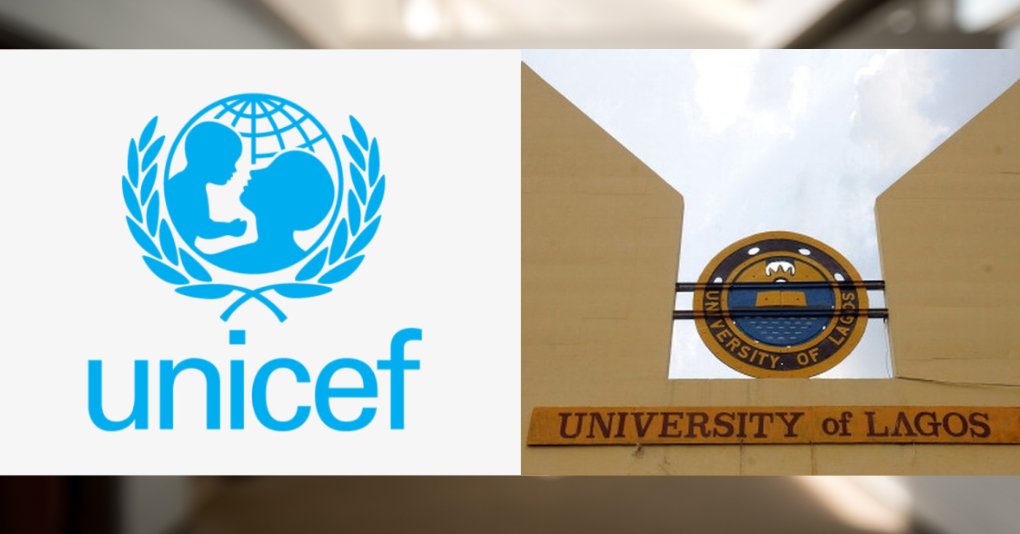The United Nations Children’s Fund (UNICEF) in partnership with the University of Lagos (UNILAG), and others unveiled Nigeria’s first Behavioural, Insights, Research, and Design Laboratory (BIRD-Lab) to deepen understanding of human behaviour and improve development outcomes.
Kshitij Joshi, chief of social and behavioural change at UNICEF speaking at the unveiling at UNILAG’s College of Medicine, Idi-Araba, on Friday, said, the pioneering initiative marks a major step forward in using evidence-based research to shape policies and programmes that better serve children and communities across Nigeria.
“UNILAG is just the beginning, we will have similar labs in other universities as well, more importantly, it’s a concept, and an approach; the physical space is just one manifestation.
“It’s a platform for students, private sector, and the media to collaborate and contribute to understanding and unpacking what drives Nigeria,” he said.
Joshi emphasised it will help researchers understand what drives Nigerians, not just in the space of health, but in terms of open education such as knowing why parents refuse to send their children to school.
“We can use the lab to guide the programmes, and services from the government, and the civil society, among others, and even streamline the way products are designed by the private sector.
“It’s a consortium, and a place for bright minds to collaborate and contribute to Nigeria,” he said.
Rownak Khan, deputy representative for programming at UNICEF Nigeria said the Lab will help students to conduct research on different social issues, such as health, nutrition, water, sanitation, education, among others.
She emphasised that it is meant to help researchers understand why people behave in a certain way.
“This research will help us to understand the community perception, behavioral motivation, and help policymakers and practitioners to make adjustments in their programming,” Khan said.
She explained that many other Nigerian universities are involved in the project, starting with UNILAG.
“We have to understand, it’s not only one university we’re working with. We are working with many other universities, 19 universities are part of this initiative, and UNILAG is one of them,” she said.
Folasade Ogunsola, vice-chancellor at UNILAG, represented by Afolabi Lesi, deputy vice-chancellor in charge of development services at UNILAG, expressed gratitude for the choice of the institution for the physical citing of the hub.
“We’re uniquely positioned to partner with UNICEF and the government in this project. I have no doubt that this project will succeed, because it’s multidisciplinary, has a national outlook, and a great partnership,” she said.
She said the project’s multidisciplinary disposition accommodates the sociologists, community physicians, and even the community.
Ogunsola emphasised the hub will endeavour to communicate its findings to the community so that it can drive behaviour change.
“We know behaviour drives every decision-making that we take, so we want to be able to communicate our findings in such a way that society will change,” she emphasised.
Ademola Oremusu, provost of the College of Medicine at UNILAG said the impact of laboratories goes beyond health and hospital settings, to the roles of psychologists, sociologists, and experts in behaviour.
Besides, he said there will be emphasis on communication beyond the universities, to ensure the community is involved.
“The community is very important, our mothers, their practices, beliefs, and ethos. All those things come into play in making an impact.
“Through the Lab initiative, we want to see how we can modify behaviour,” he said.
He reiterated that behavioral changes will lead to better outcomes for health, and people can have access to health facilities, and good nutrition.
“We’ll measure the impact by how maternal and infant mortality rates dangle. We’ll look at the impact of immunization and communicable diseases coverage.
“We are going to continue to look at these parameters and report to the government. So, we can have policy formulation, evaluation, monitoring, and reformulation,” Oremusu said.
Akin Osibogun, chairperson of the event described the project as timely, considering Nigeria’s, and other Africa’s infant and maternal mortality rate in triple digits, whereas in Europe, it is low.
“Mothers and babies are dying in our country, I will be excited at any initiative that contributes to maternal and infant mortality reduction.
“We are opposed to ill-views of mothers and caregivers that contribute to high maternal and infant mortality rates,” he said.
Adebayo Onajole, chairperson of NETBRESCIN, in his address, said the laboratory which is the second in Africa, with the first Ethiopia, is supported through a partnership between NETBRESCIN, the Federal Ministry of Health and Social Welfare, UNICEF, and their developmental partners.
“It’s an inclusive, collaborative space to share experiences, connect and inspire others through innovative behavioral science, building evidence, and scaling methods to achieve meaningful and measurable results for children.
“This project was born out of a shared belief that meaningful change begins with a single idea, and such an idea can only be nurtured by commitment and being driven by a clear vision,” he said.
Share this post





Be the first to comment on this post